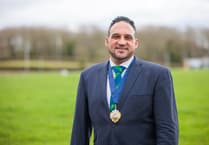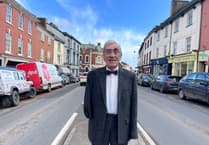WITH the dust settling from Tuesday’s protest at the Royal Courts of Justice, and the verdict set to be announced imminently, let’s take a look as to why people made their way to London for the rally, and what Dartmoor and a night under the stars means to them.
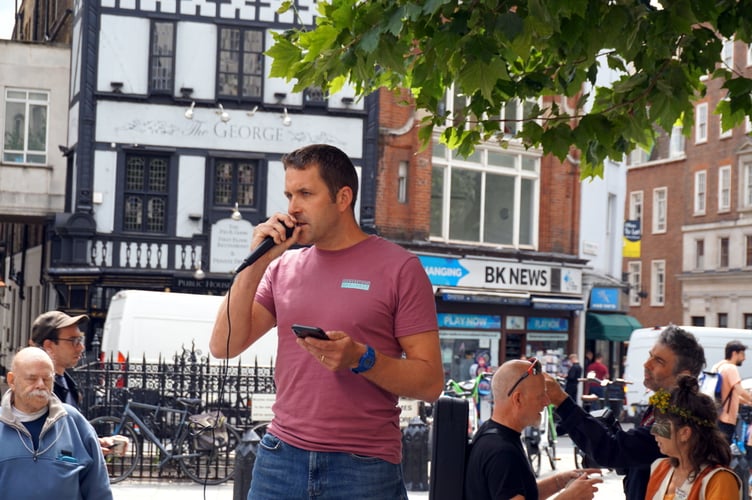
Tom Usher is CEO of the Dartmoor Preservation Association, an organisation that’s over 100 years old and is at the heart of the appeal, raising more than £60,000 for the appeal’s legal costs.
Tom explained why the appeal has been so important to so many: ‘The original judgment last winter was a bitter disappointment to our organisation and many thousands of people all over the UK.
‘It’s yet another assault in a series of assaults on the right to access Dartmoor National Park.
‘The permissive agreement has been good in allowing DofE, Ten Tors and countless personal expeditions to continue, but it’s not good enough. It’s a retrograde step.
‘A permission, paid for by the taxpayer, to private people already receiving tax breaks and controlled by a few people is not a right.
‘It is tenuous and a gateway to other access rights on Dartmoor being removed. That is the crux of the problem and the central reason why we have to be at the Court of Appeal today.’
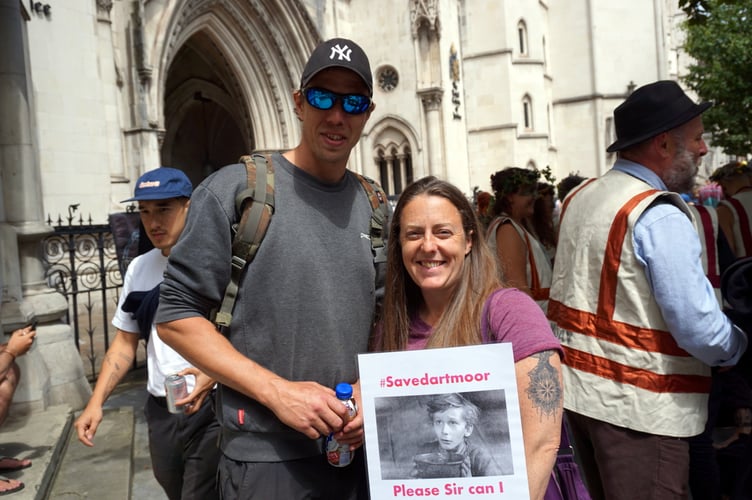
After working in the outdoors with children on DofE and Ten Tors for many years, Cat Howard could see the importance of open access to the moor, not just for herself, but for future generations as well.
‘I work with a lot of local young people,’ said Cat.
‘I do a lot of work with Ten Tors and DofE.
‘It’s really important that young people are able to have these experiences.
‘It’s really important that young people are able to have these experiences and make decisions that in the wild that immediately affect them.
‘Learning is all about making mistakes and learning from them. Taking the right to camp away could profoundly affect future generations.’
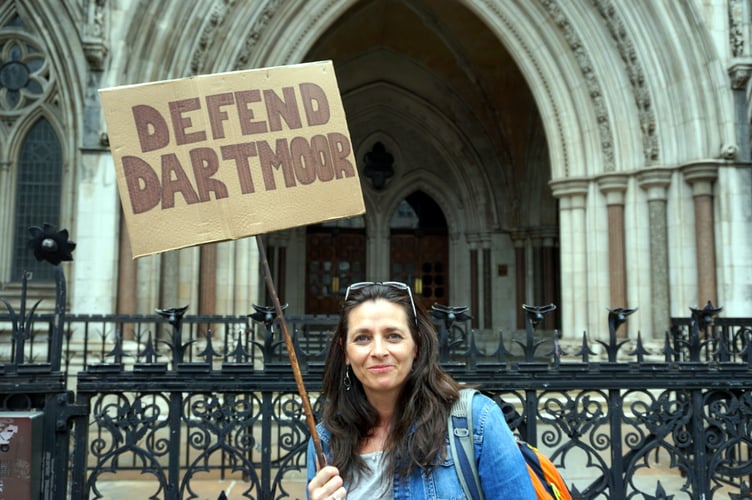
Becky Richardson grew up in Devon but now lives in Wiltshire.
Like many at the mall, her experiences as a child affected her relationship with the moor and her passion to keep access unrestricted for future generations.
Becky said: ‘Dartmoor was my garden as a child. I spent an awful lot of time on Dartmoor, it’s a place that I’d take my children to and now they’re adults, they now go to.
‘I think it’s so important that it remains accessible to everybody, and the reason why they’re trying to erode camping rights is not for the good of the greater public.
‘It’s not preserving Dartmoor, I think that the people who camp on Dartmoor have a much better idea of how to preserve Dartmoor because they love it. He (Darwall) just wants to make money from it.
‘The reasons are all wrong, and I think it’s the start of a bigger conversation about access to land across England. But for me, it very much started on Dartmoor.’

Caroline Lucas, Green Party MP for Brighton Pavilion, was in attendance at the rally.
She saw the importance of the campaign but also framed it in a wider issue of England’s poor access to nature.
Caroline said: ‘I’m here in solidarity with everyone campaigning, not just for the right to wild camp on Dartmoor but for the wider right to roam as well.
‘It appears to me that it’s more important than ever that we ensure people can feel connected with nature, feel intimate with nature.
‘We know that the UK is one the countries most disconnected from nature in the world and that matters it means that if they don’t know nature, they won’t know how or why to protect it.
‘So for me, it’s about protecting nature, it’s about recognising our right to nature. There’s a real momentum in reclaiming that.’
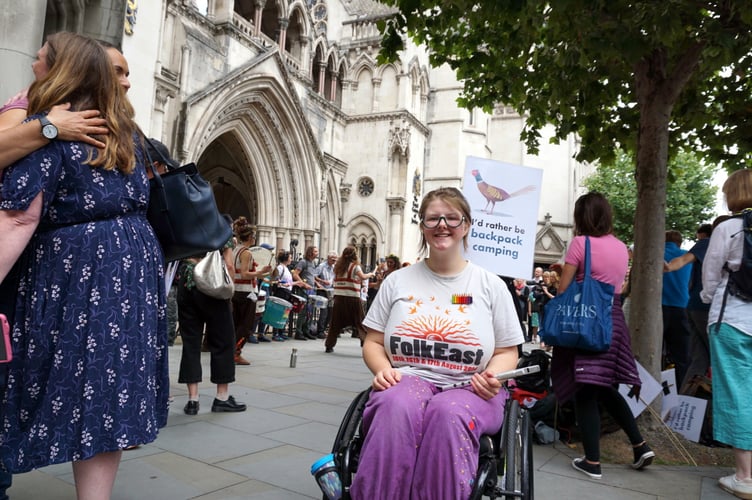
As a wheelchair user, Poppy Price-Dowhan from Suffolk had a unique perspective on the issue.
Poppy said: ‘Wild camping as a disabled person is very challenging, if you want to camp on the edge of legality as an able-bodied person, you can go and hide somewhere. If you’re a wheelchair user, you’re visibly more vulnerable.
‘Being somewhere like Dartmoor, where it’s accessible and okay, is so important to have.
‘People with disabilities want to get out more, but if they don’t have the spaces to do it, it becomes impossible. It’s a part of access that people don’t think too much.’
Alexander Darwall and his wife are yet to comment on the recent appeal. However, in previous responses, they have stated that the current permissive arrangement is favourable: 'Blachford Estate believes the permissive agreement preserves and facilitates the spirit and ethos of genuine ‘back pack’ camping.'
On the news that Dartmoor National Park Authority was planning to appeal the verdict given last winder, Darwall stated to the DNPA: 'You are not behaving as a public authority should. You are behaving like a campaigning organisation. That is not your purpose and duty... You do not need to pursue this appeal. You should not pursue this appeal. And if you do, you risk creating a situation which is worse than the current one.'

